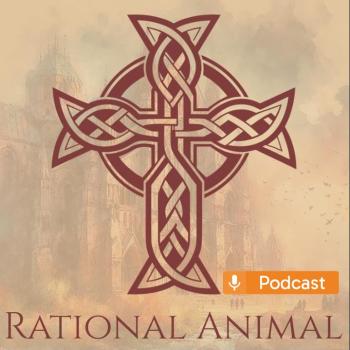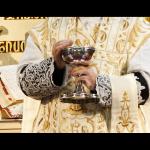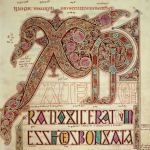ABC’s Nightline has recently portrayed Theology of the Body popularizer Chris West as a “sex guru” who considers Hugh Hefner a personal hero. West was so chagrined he even published a short piece that, while being gracious that ABC let him get his message out, offered clarification on a few points. Don’t worry Chris. We know what you meant.
Now, aside from a few obvious mistakes that most Catholics ‘in the know’ will catch right away, there was also something in the video that many Catholics ‘in the know’ might not catch. At one point the journalist informs us that “West believes sex without the possibility of creating new life is a sin.” I presume that West doesn’t believe this, but whether he does or not, it is true that this is a common way for people to understand Catholic teaching about artificial contraception. Such a formulation leads to much confusion.
In the first place, it deals the ‘contraceptive mentality’ debate a blow from which it never recovers. If every act must have the possibility of procreation, NFP is necessarily used with a contraceptive mentality: the goal is to avoid pregnancy and the Church teaches that every sex act must be open to pregnancy. People who understand the problem in this way are not willing to allow for NFP use in anything but the direst of situations, and even when they do allow it, their arguments for why it is permissible are so tortured and laborious that they don’t convince anyone. The Church ends up looking like it is contradicting itself.
Secondly, the Church’s allowance, even encouragement, of NFP ends up looking like a function of NFP’s supposed ineffectiveness. Talk about “leaving room for God” in the sex act just confuses our critics (not to mention our own people). They’re likely to say something like, “Sure you can use natural methods, but that’s just because they don’t work. Your Church says every sex act must have the possibility of procreation.” This reasoning is demonstrated in reverse when Catholics argue that they can use condoms or the pill because, since they are also not 100% effective, they also “leave room for God to work” if he so chooses.
This is all nonsense of course. God does not require tiny statistical probabilities in order to make babies. But the reason that intelligent, faithful Catholics get caught up in such nonsense is that they’ve started with a false premise – namely, that the Church teaches that every single sex act must have the possibility of procreation.
In reality, the Church teaches no such thing. The Church has no problem with people avoiding pregnancy when the situation calls for it. Furthermore, as everyone knows, the Church does not discourage sexual intercourse during pregnancy, post-menopause, after a hysterectomy, or in any other imaginable circumstance where a couple is naturally not fertile, including roughly 3 weeks of the average menstrual cycle.
Now, for people who have heard that the Church teaches every sex act must be ‘open to life,’ it is easy to think the Church is going against its own principles here. I have even had people (Catholics ‘in the know’) explain to me that the reason the Church allows post-menopausal marital relations is that, through a miracle, God could create a baby even in that situation. Really? I wouldn’t call it a miracle if a 75-year-old got pregnant. Let’s look at the limit case here: what would we call it if a woman who was 6 months pregnant got pregnant? Not a miracle, but a tragedy – one in which several lives are threatened.
‘Openness to life’ is a lovely phrase for people who are inclined to agree with the Church in the first place. It indicates a disposition of gratitude and humility, and it means that even unplanned children are valued the same as anyone else, as a gift from God. If, on the other hand, someone is struggling with Church teaching, or is just plain antagonistic towards it, the phrase can be misleading. The claim that every sex act must be ‘open to life’ does sound an awful lot like the claim that every sex act must have the possibility of pregnancy, however remote. But that is not at all what the Church means by it.
All that the Church means is that we are not to alter the sex act to avoid its consequences. That’s it. (We can debate the merits of this teaching some other time. The point here is simply to clarify what the teaching is.) We are free, in many circumstances positively encouraged, to avoid the sex act in order to avoid its consequences.
This leads us into another area of terminological confusion. What, precisely, does the Church mean by ‘natural’? Simply this: that the sex act is not altered.
NFP works by observation, not by manipulation. Suggestions that the Church’s allowance of technology (thermometers, hormone monitors, blood tests) for fertility observation makes NFP morally equivalent to artificial contraception miss the point entirely. Once you’ve determined the fertility, technologically or otherwise, you still have to make the choice: will we have sex or won’t we? ‘Natural’ here does not mean the absence of technology; it means that the sex act, if it occurs, is unaltered. Further to the point, the Church does not allow for withdrawal, even though this requires no technology whatsoever. The issue, again, is the alteration of the sex act to deprive it of its consequences.
It is always tempting to use catch phrases as teaching tools. In a way it is inevitable. Nevertheless, if we are to present Church teaching in a coherent way, we need to teach people more than the catch phrases. In a culture where Church teaching is so counter-intuitive we need to make sure that at least those who agree with us have got it right.
_________________
If you liked this piece, you might also be interested in:
Natural Family Planning Apples to Artificial Contraception Oranges
Catholic Answer and Having Number 3
Is “Sexual Compatibility a Myth: Some Thoughts on Cohabitation
Avoiding Fallout from Theological Time Bombs
Why Is the Church so Obsessed with Sex?
An interview with the authors of “How Far Can We Go? A Catholic Guide to Sex and Dating
___________________
Brett Salkeld is a doctoral student in theology at Regis College in Toronto. He is a father of two (so far) and husband of one. He is the co-author of How Far Can We Go? A Catholic Guide to Sex and Dating.
















